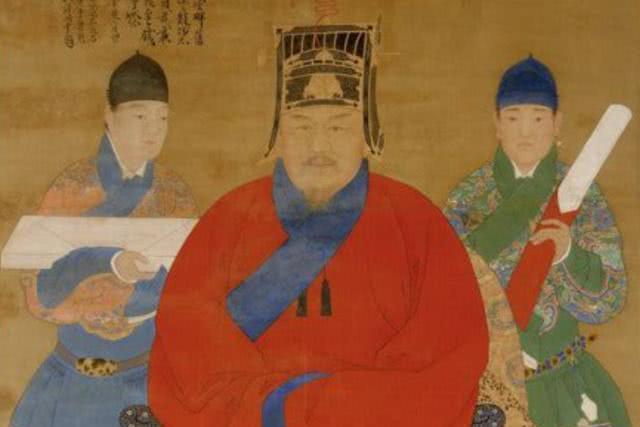In the history of China, almost all the founding emperors will routinely practice the policy of "three fires for the new emperor to take office", usually, one of the three policies must be to restrict commercial development, but there is an exception in the previous founding emperors, the public open to the public and even encourage officials to do business, he is the Song Taizu Zhao Kuangyin.

How low are the salaries? I can't even afford to eat meat!
After the founding of the Song Dynasty, the income of officials was very low, and the monthly salary of the county order was only enough to buy 10 catties of mutton, of which 2/3 was also converted into tea, salt, wine and other necessities of life, so Wang Anshi once commented, "The current official Feng Lu is too low, the population of the family is slightly larger, if you do not go through commercial farmers, there is no way to survive." Low salary is not enough to support honesty, this is the world's public opinion, in the Tang Dynasty, Li Shimin came up with the strange trick of "public money", in today's words, it is the official family to lend usury to make a profit.
But the Song Dynasty did not have this system, so the officials had to open their own courts. Because of the widespread concept, scholars are no longer ashamed of doing business. Only when a scholar and a doctor are also engaged in economic undertakings can they support their families, which is a completely different place from the past. Officials compete with commoners for profits, while students who are not officials must first have the business of agricultural business. Even at that time, everyone generally felt that only with the money to support the family could they concentrate on the imperial examination.
What to make money with? It is done in an improper way
As a result, industry and commerce developed rapidly, and the power of merchants became larger and larger. In a family, the father and brother run industry and commerce, and the children concentrate on studying in order to make progress in their careers. Since ancient times, there have been rules for the division of the four peoples, and now the four people are not divided, and the descendants of the ancient scholars have been scholars for generations, and now, the descendants of merchants can become scholars, which is the biggest change after the Song Dynasty until the Ming and Qing dynasties. But the money these officials make isn't 100 percent clean either.
Song Dynasty officials used the state-owned monopoly system to practice private practice in the name of the public. According to Quan Hansheng's examination: In the tea industry, "the officials of the Song Dynasty who sold tea privately were mostly those in charge of tea administration" and "the Song Dynasty border officials often privately held tea"; in the salt industry, "the private salt industry of the Officials of the Song Dynasty was very popular, and its operators were not only local officials, but also the parties in charge of salt administration, but also included the prime minister and generals at that time"; in the liquor industry, "the atmosphere of the private liquor industry of the Officials of the Northern Song Dynasty was the most powerful in the time of Emperor Renzong"; in the Southern Song Dynasty, even Ye Mengde, the highest financial and economic governor in the country and a senior scholar of the University of The Imperial Government, opened liquor stores privately In the timber industry, "most of the high-ranking officials and nobles at that time sent people to Qin and Longjian in Shaanxi to buy bamboo and wood, transport them back to Beijing duty-free, and sell them at high prices to obtain rich profits."
From the pre-Qin to the early Han Dynasty is the aristocratic economy, evolved to the Eastern Han Dynasty to the Wei and Jin Southern and Northern Dynasties, became the clan economy, after entering the Sui and Tang Dynasties, gradually showing the trend of "the convergence of scholars and merchants", to the Song Dynasty, finally finally finally defined as the gentry economy, the evolution of about 1000 years to this point, there has been no progress since then. In essence, these three economic forms are all government-business economies. Using public funds as capital, public property as commodities or commodity raw materials, official ships as trafficking, using public labor, buying and selling at a low price, monopolizing or tax evasion. Of course, these six points are the "peculiarities" that have been common to all government and business economies throughout the ages.